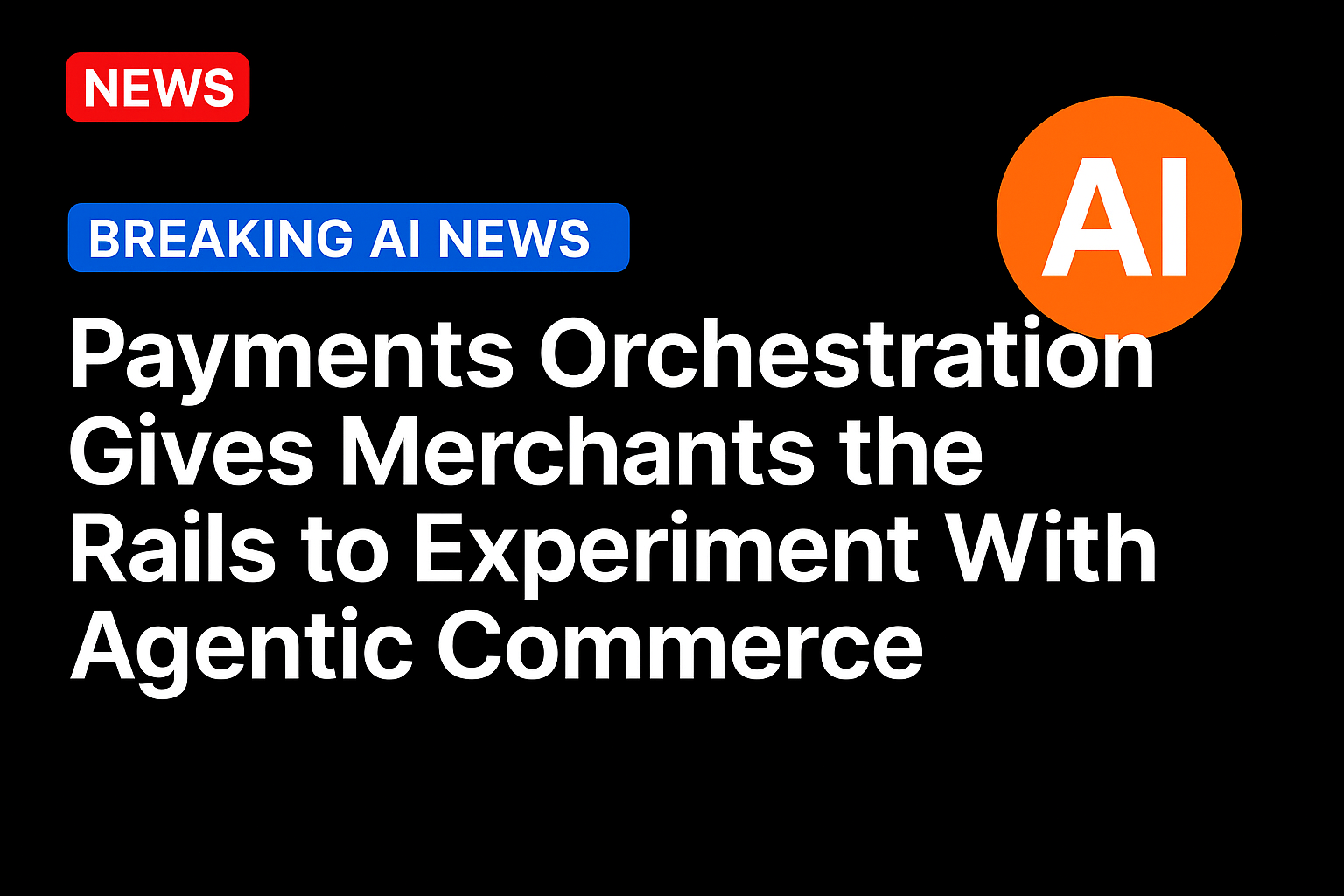Commerce has always been built on complexity, but few areas are as intricate as payments.
Merchants today face a proliferating array of providers, gateways, tokens and transaction flows, all while needing to deliver seamless experiences that convert at the lowest possible cost.
Artificial intelligence is beginning to make real-time decisions about routing and risk, and payments orchestration is moving from optional infrastructure to strategic necessity.
Spreedly CEO Justin Benson told PYMNTS CEO Karen Webster in an interview that the orchestration model will be turbocharged by AI.
“It’s the sort of perfect use case for AI in the sense that it can take the complexity around working with multiple providers and make it simpler,” Benson said.
Advertisement: Scroll to Continue
By linking disparate systems and data inputs, orchestration platforms create a foundation of trust that allows merchants to embrace autonomy without ceding control, he said.
Not All Transactions Are Equal
There is tension between merchant autonomy and AI-driven decisioning, and the nuances of transaction types matter when introducing AI into the mix, Benson said.
“Not all transactions are created equally,” he said.
For one-time, high-value purchases, merchants may hesitate to let an AI agent make calls. However, for repeat customers with long histories or in subscription models, AI can automate.
“Will a merchant experiment with their largest one-time purchases with AI? Probably not,” Benson said. “Will they think about a customer they’ve seen over and over again with a strong repeat history and be more comfortable there? I think that’s how it’ll work.”
This segmentation applies not only across verticals but also across merchant sizes. Small firms may be more conservative, while larger enterprises test at scale. Still, Spreedly is already fielding real interest.
“I was pleasantly surprised by at least how some of our customers are really forward-looking in terms of trying to lean into agentic commerce,” Benson said.
Consumers Are Already Experimenting
The pace of consumer adoption may be faster than merchants expect, Webster said.
“The consumer is really embracing it,” she said. “It creates a different kind of discovery experience … where you can get more specific with the prompt and the conversation that you’re having with the model, or within the construct of the merchant site itself.”
Benson drew a parallel to the early electric vehicle market, where new experiences allowed brands to win previously loyal customers.
The ability for AI-enabled orchestration to support fresh acquisition is “what’s fueling some of that merchant interest,” he said.
Experimentation at Scale
Spreedly sees orchestration’s role as providing the rails for experimentation, Benson said.
“Orchestrators can really lean into our traditional role as kind of independent, agnostic, third-party platforms for merchants,” he said.
By aggregating data across multiple providers, Spreedly can surface recommendations, like routing volume to the payment service provider (PSP) showing stronger results or suggesting automated flows other merchants have found effective.
That capability reduces risk. Merchants can test new methods without lengthy integrations. If an approach fails, “they’re already connected to an orchestrator, don’t have to go out there and justify building an integration … it’s that ease of use of quickly trying and experimenting,” Benson said.
There are parallels to tokenization. Just as network tokens created new rails for identity and trust, orchestration in the AI era enables scaling of semi-autonomous rules, quotas and purchase parameters.
Providers, Margins and Risk
The rise of AI-driven orchestration also changes the dynamic with PSPs. Rather than fearing commoditization, PSPs are focused on differentiation, Benson said.
“The conversation that we typically have with PSPs is we understand the value of orchestration,” he said. “What we want to do is make sure that we’re competitive and differentiated on your platform.”
Still, margin pressures may emerge. AI routing could favor low-cost methods like open banking or ACH, creating at least some compression, Benson said. But orchestration also enables PSPs that lean into AI to capture new revenue opportunities.
On liability, AI transactions will flow through existing frameworks, he said.
“Ultimately, there’s really no reason why you wouldn’t see it flow in [the] exact same workflows that they have today with card,” he said. If anything, AI could reduce friendly fraud by tightening the handshake between identity and authorization.
What’s Next
For Spreedly, the next chapter is helping merchants navigate a fast-changing landscape of protocols and providers.
“We’ll go out and do those integrations on their behalf so that they can experiment,” Benson said.
That filtering function may prove decisive.
“It’s to help merchants separate the hype and the press release from what can actually move the needle for their business,” Benson said.
Source: https://www.pymnts.com/

